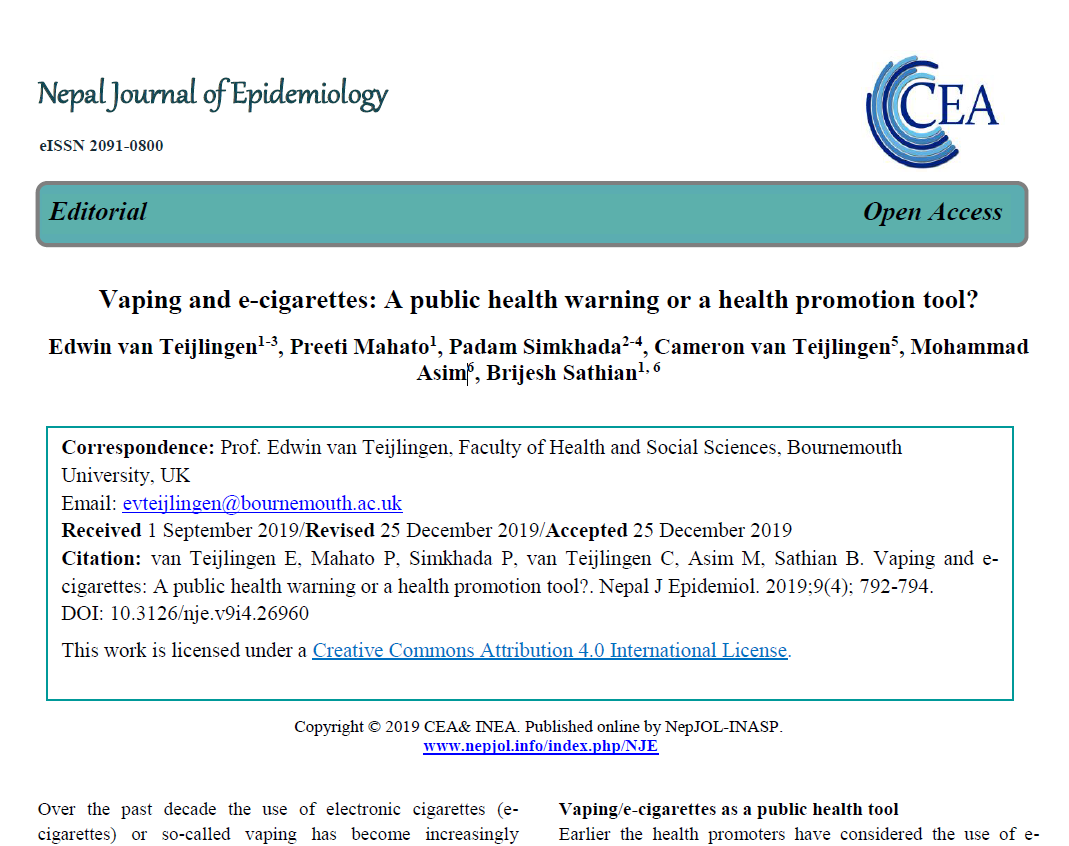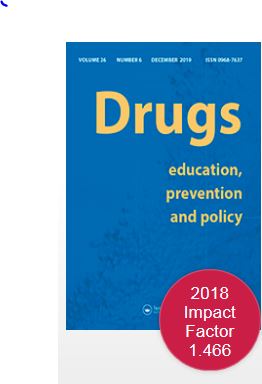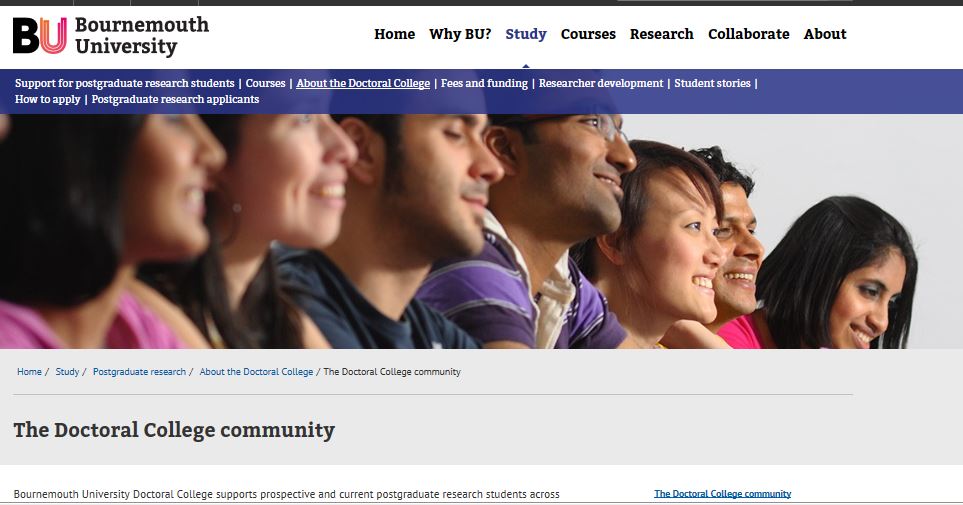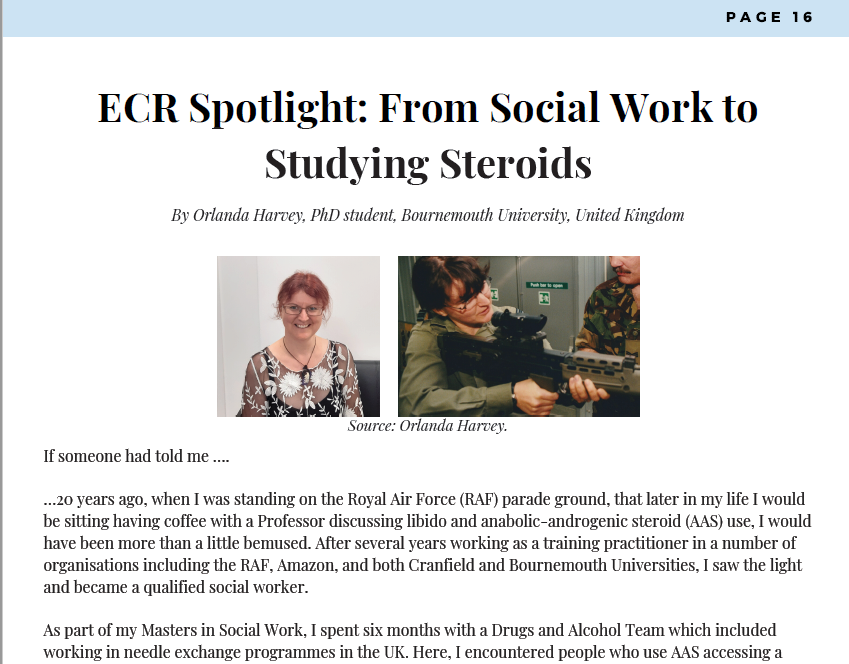It’s a full moon on polling day and the results will be announced on Friday the 13th! Superstitions aside we’re issuing your policy update early this week before the election outcomes are announced so you can focus on all the educational news. Fear not, we’ll bring you all the election fall out and early outcome scenarios in a post-election special edition.
Measuring Up the Educational Manifestos
We’re not including the myriad of speeches and party declarations this week. However, worth a short mention is the Education Policy Institute (EPI) who have (like many others) analysed the five main parties’ manifestos, compared them against EPI costings, and considered what the impact would be from an independent perspective. They conclusions don’t paint the rosiest of futures for the education sector:
- Although all parties have made bold pledges about reducing opportunity gaps and raising educational attainment, the policies in their manifestos are unlikely to deliver on these aspirations.
- Despite a large proportion of the attainment gap between poor children and the rest emerging before entry to school, party policies seem to focus on improving childcare for employment and cost of living reasons, rather than focusing on high quality early years education. While Labour and the Liberal Democrats are making major funding commitments in this area, there are serious questions about whether their policies can be delivered effectively and secure high quality and value for money over the limited implementation periods envisaged. The Conservatives give no indication of whether they will take action to improve the quality and progressiveness of early years entitlements.
- All major parties are pledging additional funding for schools, colleges and special needs education – with Labour and the Greens committing to the biggest increases. This could help to deliver effective interventions and may improve teacher retention. But under Conservative policies, there will be a relative shift in funding away from schools with higher levels of disadvantage – and this attempt to “level up funding” could widen the disadvantage gaps in attainment. Both Labour and the Liberal Democrats may have under-estimated the cost of their policies on free school meals, and this could require funding to be diverted from other parts of the schools budget.
- Large policy differences have opened up between the parties over school inspection, school testing and performance tables. The current system of accountability is in need of improvement, but education research suggests that Labour and Liberal Democrat plans to scrap primary tests and move to lower stakes inspection could damage attainment, and might particularly pose a risk to improving outcomes for the most vulnerable learners. The Conservatives do not commit to improving the current system or addressing any of its negative incentives and impacts.
- Party policies on post 18 education are particularly disappointing. Labour proposes that its most expensive education policy should be allocating around £7bn to scrap university tuition fees, even though this may not improve participation, or the access of vulnerable groups. The Conservatives offer few policies on higher education, and the one concrete measure (reduced interest rates on student loans) would disproportionately benefit higher earners. The Liberal Democrats appear to be offering a similar “Review” to those included in their two previous manifestos.
- While all parties are committed to additional education funding over the years ahead, there is a high level of uncertainty about the revenues which have been earmarked for such funding. The Conservative plans assume that the growth impact of Brexit will be moderate; the Labour plans assume the same, and also rely upon large tax revenues from a limited number of sources; meanwhile, the Liberal Democrats are banking on a “Remain Bonus”, and revenues from uncertain sources such as tax avoidance. With all parties, it is unclear how education spending plans would be altered if the projected revenues isn’t realised and cuts have to be made.
Natalie Perera, Executive Director and Head of Research at the Education Policy Institute, said:
- “All of the main parties are united by one thing – bold ambitions to raise attainment and close gaps. However, our analysis shows that while each party has some well-designed and helpful policies, none has a properly evidence-based strategy to meet their ambitions”
A NUS General Election survey with healthcare students found that 68% of students (with a loan) are more likely to vote for a party because they plan to bring back maintenance grants post-election. Claire Sosienski Smith, NUS Vice President (Higher Education) also mentioned the NUS Homes Fit for Study Report which said 1 in 6 students are unable to keep up with their rent payments. She said “we know that a student finance system based on individual debt is fundamentally flawed.” This was reinforced by the recent General Election survey with 2 out of 3 students stating they did not have enough money left to pay for everything once they had paid their rent and 43% rely on their bank overdraft. Healthcare students particularly raised issues of having to fund placement expenses up front, inadequate hardship funding systems and paramedics who are unable to access reimbursement for placements.
Also hitting the news this week are the health care courses at risk due to the bursary removal recruitment crisis – podiatry, radiotherapy, prosthetics, orthoptics, and mental health and learning disability nursing. BU’s Steve Tee, Executive Dean of HSS, is quoted in the article:
- “Now the bursary has been taken away there are specialist courses with small numbers nationally that have been put at risk. This is intensified if the course is in an area like radiography, which requires expensive kit. Why would a university invest if they are only getting 20 people?”
Grade Inflation
There is an interesting article on Wonkhe by Mark Corver of dataHE. Sarah was lucky enough to hear him speak at Wonkfest and explain how claims about grade inflation rely on inaccurately data. The data modelling actually suggests grade deflation –a double whammy for students. The article is a little technical but worth a read to understand why the Government’s claims are being refuted. It also has a high number of comments at the bottom of the article showing how engaging it is (and as Wonkhe only publish the ‘most interesting’ comments we can imagine there was a lot more chatter than published). Some excerpts to get you started:
- It is likely that the true attainment of today’s young people is being seriously underestimated, putting them at a disadvantage, and damaging universities in the process.
- ..there might be areas where this powerful grade deflation could be causing problems for young people and universities. Here are two examples.
- The first is the damage from the charge that the sector is “dumbing down”. This has that – in contrast to the past – universities are now admitting people whose attainment is simply not good enough for higher education. That the average A level grades for UCAS acceptances has been going down provide fuel for this view… If you correct for the modelled grade deflation (Figure 8), average grades held by UCAS applicants who get into university have not been going down. They have been going up.
- The second problem is where post-2010 grade data is used for analysis through time. Particularly so if that analysis is used by government to pursue policy. Which takes us back to those sharply worded complaints of degree grade inflation that the government has levelled at universities, and its calls for action to stop it. These rest on Office for Students statistical models of degree grade inflation. A level attainment is a very powerful factor in that model. And rightly so because the stronger your A level grades the better your odds of getting a higher class degree.
- But the way the model is built effectively assumes that A level grades are an absolute measure of educational attainment that are stable through time. With this model construction, if universities maintain their academic standards then it is inevitable that the neglected A level grade deflation will pop up as degree grade inflation. But it would be a false signal. Degree quality would be unchanged. It is the measure of the input quality that has changed.
- Our proposed A level grade deflation might not be a big enough effect to account for all the degree grade increases seen. But it would be a very substantial effect. We think that this, and other potential weaknesses in the model, do amount to reason enough to look again at the models and their conclusions. Meanwhile, government might want to think again about its pressure on universities to make it harder for students to get “good” degrees. Otherwise a double whammy for young people looms: those who have already been hit by deflated A level grades risk being hit again with a lower degree class than their attainment deserves.
Student Finance & Accommodation
Clear Accessible Finance Information throughout the Student Lifecycle
In June UUK and NEON published The Financial Concerns of Students. They said that the available information on tuition fees and the student loan system in England is often inaccessible and unclear, and that students want more information on how universities spend tuition fee income. The main findings were:
- Prospective and UG students need clearer and better-targeted financial advice on the full implications of taking out a student loan.
- Prospective students are uncertain what universities spend tuition fee income on.
- Living costs are a more significant concern for current UG students than the level of tuition fees.
- Strong agreement that going to university generally helps graduates to earn more money in the longer term (64% of prospective students and 77% of UG students).
- More than half of students believe they should make some contribution to the cost of their education.
Since the report NEON and UUK ran a student finance information advisory group consisting of sector experts from nationwide leading organisations who work with prospective and current students to communicate student finance information. This week the group published Improving the provision of information on student finance and have proposed a Student Finance National Education Programme which recommends how to ensure student finance is more understandable and accessible for all (including family members). In summary:
- Student Finance Information should be more coherent and collaborative – government and information providers should develop and sign up to an industry standard of core messages.
- Teachers, schools and parents vary in their capacity to support prospective students’ decision making – leading to access gaps. Approaches and activities offered to schools should be underpinned by a more robust, funded, national careers policy than exists at present. Specific parental information is important as they are one of the most influential actors on the young person’s decision.
- Take a student lifecycle approach to the provision of information required. Focus on sharing information during study and post-graduation (differentiated for particular groups of students) as well the prospective student stage.
- The UK’s student population is larger and more diverse than ever before. A national education programme on student finance must reflect this diversity with a balance of different approaches to information sharing. It should reflect the needs and circumstances of prospective and current students, from school leavers to those in work considering study, and those with caring and other commitments. There is potential to strengthen a range of different approaches, such as online and face-to-face provision, and explore implementing tailored approaches for groups like mature students and care leavers.
- Policymakers need to adopt a more strategic approach to the provision of information on student finance and be more ambitious in their goals particularly on coherence. A strategy should be developed collaboratively and in consultation with students, those who advise them, and student finance information providers. This strategy should aim to provide more than a basic level of information at the pre-higher education stage and ensure that students have a level of knowledge enabling them to make the right choices for them, based on an understanding of the costs and benefits of higher education prior to, during and after study.
Wonkhe have a blog on the topic: How we communicate student finance needs a re-think.
Accommodation
Wonkhe report that Commercial Estates specialist Cushman and Wakefield have reported on the level of private student accommodation. Key points:
- 87% of new student beds are delivered by the private sector
- The average ensuite accommodation is priced at 70% of the level of the maximum student loan. (NUS recommends rent by no more than 50% of maximum available.)
- There are 23% more places in private halls since 2013
- Demand for student accommodation rises 30% faster than can be built (although there are huge increases at some providers balanced by decreases elsewhere). Research Professional state – the top five universities for recruitment accounting for 41% of all growth in the last five years while the bottom five universities by student growth have seen a 29% decrease in student numbers.
The Times covers the report in the (very short!) Students struggling to find affordable accommodation.
Research Professional also covered the report in their own way highlighting concerns over absence of affordable student rooms stating that private student accommodation blocks are becoming more luxurious but affordable options remain scarce.
Eva Crossan Jory, vice-president for welfare at NUS echoed this and called for rent controls to stop prices spiralling further. “This is the latest report to confirm the increasing cost of accommodation has created a real affordability problem for students,” she said, adding that “reform is urgently required.”
Social Mobility
HEPI have released a wide range of content this week. Their policy note (prepared by colleagues at Exeter University) on Social Mobility has particularly been picked up by the media. The note begins by stating
- Much of the heavy lifting on widening participation in higher education to date has been undertaken by newer and less selective higher education institutions. The access challenge therefore remains greater at more selective institutions. They could learn from the best practice that exists in less selective universities.
- It will take nearly a century for highly-selective universities in England to raise the participation rate for 18-to-30-year olds from the least advantaged areas to the existing participation rate for 18-to-30-year olds from the most advantaged areas.
Interestingly they state that if the number of degree places at the selective institution remains static (i.e. doesn’t grow) the number of places for advantaged pupils would need to fall by as much as 10,000, which is one-third of current annual intakes [to meet social mobility targets]. To meet the targets highly selective universities would need to double their places over the next 20 years to ensure all young people access the same participation rates as the most advantaged students. An extra 19,400 18-year old students from the least advantaged areas would need to enrol each year at highly-selective universities to equal the current participation rate of 18-year olds from the most advantaged areas.
Other recommendations:
- Social mobility rankings for universities should be established, measuring outcomes for disadvantaged students.
- The Office for Students should challenge highly-selective universities to expand student numbers in innovative ways to diversify intakes, including degree apprenticeships, foundation years and courses for part-time and mature learners.
- Universities should undertake a social mobility audit, benchmarking their work on outreach, access and academic and pastoral support for disadvantaged students.
- Universities should also consider using random allocation of places for students over a certain minimum academic threshold (as has occurred in other countries).
On Contextual Admissions the report states:
- Universities have long taken into account the context of prospective students when assessing their potential. Contextual admissions are used in many ways – giving students a taste of university life, establishing which candidates should be interviewed or offering a degree place on lower grades.
- But too often universities operate in the dark, worried that reduced offers will damage their reputations. ‘How low can we go?’ is the first question, sometimes followed by ‘how can we keep this out of the public eye?’ What is baffling for applicants is that contextual information is used differently from one university department to another. Research suggests that more consistency and transparency is needed.
Later the policy note acknowledges how university league tables have ‘chilling effects’ on universities’ efforts to promote social mobility. But rankings are here to stay.
- The problem is that league tables punish universities for improving social diversity. Perversely, the tables do not generally measure the gains made by students. Universities gain higher rankings for the higher A-Level entry grades they demand – a direct disincentive to award lower grade contextual offers or consider applicants without traditional academic qualifications. Dropping down the newspaper rankings and losing status can mean fewer future applicants from the very groups a university is trying harder to attract. A succession of government representatives have tried in vain to convince newspaper compilers to reform their rankings.
Instead the policy note authors suggest that social mobility rankings could bring balance to the importance placed on current attainment based ranks.
On the place lottery:
- Post-qualification applications would open up more radical possibilities. Universities could use random allocation of places for students over a certain threshold of A-Level grades. This is the fairest way of selecting equally-qualified candidates for degree courses. Lotteries have been used widely in education. You might compensate losers in the lottery – such as guaranteeing a place at another institution. Dutch medical schools select the highest academic performers by traditional means, and enter lower achievers into a lottery.
- The benefit of these schemes is their simplicity. Admissions tutors have amassed a battery of criteria designed to distinguish between thousands of equally well-qualified applicants: personal statements; teacher recommendations; predicted exam grades; essays; university admissions tests; interviews; and much more. But how much of this data add to predicting which candidates are best suited for degree courses? And how much does the complexity alienate potentially excellent applicants?
The policy note concludes:
- The time has come for a simpler, more transparent, consistent and honest system of university admissions, recognising that A-Level grades (still less predicted grades) are no longer the gold standard of entry.
- Failing to find ways of expanding university places will prompt acrimonious battles over who secures degree places – a clash of the classes – with politicians, parents and students questioning the fairness of university admissions.
- Universities need to embrace a cultural shift in the support provided for students from disadvantaged backgrounds, seeing greater diversity as an opportunity to enrich the academic experience for all students and staff.
The Times takes up the HEPI report arguing for most selective universities to allocate places to all those meeting the A level grade criteria threshold by lottery (with a fall back place at another University for students who do not ‘win’ the lottery).
HEPI have also published a reply to the paper on their website by Tim Blackman, VC of the Open University.
- “‘Elite’ universities are described as such simply because they are so selective. They are the grammar schools of the higher education sector and cause the same problem for other universities as grammar schools cause for other schools. This problem is that they cream off students who have had all the advantages that enable them to be academic high-achievers at school, concentrating these students in institutions that are full of other students like them, making all universities less diverse and denying other universities a mix of abilities that is likely to enrich their learning environment and benefit everyone.
- Lee is silent about the many, often post-92, universities that have become the secondary moderns of the higher education sector because of the self-perpetuating prestige of highly selective institutions. While the measures he advocates would help diversify these institutions, they would do so at the cost of other universities that do not have the prestige that comes with the academic snobbery that pervades British higher education.
- Reluctantly, I have come to the conclusion that the only way to address this problem is to return to student number controls at an institutional level and require institutions to use entry quotas banded by grades above a minimum matriculation requirement to create mixed ability intakes across the board. This would be a requirement of their access or outcome agreements. There could be some exceptions; in The Comprehensive University I suggested that a regional distribution of research universities could be excluded on the basis that they explicitly prioritise research over education and the unique open access mission of The Open University would continue to serve a valuable role.
- …What I do not think is a good idea is to advocate more audits and more league tables. The sector is already creaking under the number of reports and returns it is required to complete, paradoxically never including institutions’ own strategic plans and institutional performance indicators. There are many progressive incremental reforms that can be made – I would add to Lee’s list the scandal of part-time distance learning students being denied access to maintenance loans in England – and in that sense his note is certainly to be welcomed. But there are great dangers in a one-sided argument that frames the debate as one that is just about access to ‘elite’ universities.”
Meanwhile Prospect Magazine takes a differing tack arguing that education is no longer a path out of the social mobility trap and that a greater focus on creating better jobs is a solution.
Finally Wonkhe have a new blog on the transformative experience of HE for care leavers.
Mental Health
Student Minds have created the University Mental Health Charter – a set of principles to ensure student and staff mental health becomes a UK wide university priority. The principles will inform the Charter Award Scheme which will be developed during 2020 to recognise universities promoting with excellent mental health practices. This summary contains the key recommendations under various topics such as transitioning to university, learning and assessment, support services, managing risks, residential accommodation, and proactive interventions. There is a timeline highlighting the next steps as the Charter Award Scheme is developed and piloted. The Scheme is due to launch in Winter 2020.
Student Minds highlight that the Charter has drawn on all the current evidence, research and sector context to ensure its real world validity for the university sector. It states it isn’t intended to be definitive and encourages institutions to combine the elements to fit the local context. Future work will review the Charter and refresh it as new evidence emerges with a major review every 3-5 years. In conclusion Student Minds state:
- It is not expected that universities will aim to fulfil each of these themes perfectly (no such a thing exists), but we hope they inspire discussion, thought, new interventions, evaluation and learning. The evidence we have suggests that progress on each of these themes will bring us closer to a moment when our universities are mentally healthy environments.
- Universities are incredible places. Within our universities we have established the basis of science, unravelled the mystery of DNA, discovered stem cells and even located a long lost King under a car park. Improving the mental health of students and staff is within our ability, given time, resource and commitment. We hope the University Mental Health Charter helps to make a contribution to this process.
Mark Fudge, Chair of the University and Colleges Division for the British Association of Counselling, responded to the Charter’s publication:
- Student Minds’ University Mental Health Charter is a step in the right direction and something for the higher education to sector to aspire to… But higher education leaders need to ensure they invest in counselling services to ensure they have enough resources so student have access to a range of mental health and wellbeing support options while at university.
- There are thousands of students who are accessing counselling services every year. These services are at the forefront of supporting the most disenfranchised and vulnerable university populations. They don’t just offer counselling but all sorts of group work, training and other support. They are often under-resourced, but they are having a positive impact on students’ lives and universities need to see that and invest more in them.
- Universities need to invest in all forms of mental health support so that students have access to a range of options when they need them.”
Immigration
Universities UK has published a public poll (data available here). British adults were interviewed on their attitudes towards the immigration of university staff coming into the UK. Had there not been a purdah period for the General Election the timing of this poll would have hit whilst the Migration Advisory Committee considers how to implement a points-based immigration system and a salary threshold for international staff. Key points:
- 87% strongly agree that it is more important that the UK’s immigration system attracts university staff who are highly skilled than it being more important that the UK’s immigration system attracts university staff who are highly paid (3% felt high pay was an important factor to allow immigration).
- 89% agree that scientists, academics and their support staff are valuable to the UK, with half (51%) saying they strongly agree. 3% disagree.
- 85% agree that it is important for the UK to be a world leader in science and research. 5% disagree.
- 82% agree that the UK should try to compete with other major economies to attract scientists, academics and their support staff. 7% disagree.
- 69% said that a UK points-based immigration system should be designed so that scientists, academics and their support staff score highly.
Alistair Jarvis, Chief Executive of Universities UK, commented on the findings:
- “Technicians, researchers, and language assistants are all vital in supporting both high-quality teaching and innovative research at our universities. These skilled roles are critical to the ongoing success of our universities. As the UK prepares to leave the EU, it is more vital than ever that the UK remains a world leader in science and research and continues to attract international talent at different stages of their careers – from support staff and technicians to Nobel Prize winners.
- If a new immigration system were to have a salary threshold, Universities UK has called for a threshold of £21,000 which would allow recruitment for most technician and language assistant roles in the higher education sector. This polling shows the strength of feeling among the British public that immigrants should be welcomed into the country on the strength of their skills and potential rather than facing a system that judges them on their income. This is vital for the UK to continue to lead the way in research and education.”
Wonkhe reported that a linked report from Universities Scotland had similar attitudinal findings with 78% of Scottish adults agreeing that the immigration system should support the entry of academics and support staff. The National covers the Scottish perspective.
Other news
Political untruths: Plaid Cymru leader Adam Price published a new draft law on Thursday that would make deliberate lying by politicians a criminal offence. The bill states “It shall be an offence for an elected representative acting in their capacity, or an agent acting on their behalf, to make or publish a statement they know to be misleading, false or deceptive in a material particular”. Adam was interviewed by Sky News highlighting how Parliament had changed: “Unfortunately we are normalising a dishonesty, we used to have conventions, social mores and norms etc. you know people used to resign in parliament if they mislead”. Adam said the push for the lying law was triggered by the misleading and false information such as Conservative HQ rebranding their twitter account to appear to be a fact checking service alongside other politicians Brexit claims which the EU have refuted.
Student Vote denied: The Independent report on the c.200 Cardiff Halls students who registered to vote but were not informed their application was incomplete and have been denied the vote. The student quoted in the article selected her address from a pre-filled drop down list but later discovered it had not registered her because it did not contain her room number. NUS called for Cardiff Council to resolve this unacceptable outcome. The Council said they had not been able to contact the c.200 people who supplied the incomplete addresses to register them in time.
Gamification: A Wonkhe article considers whether gaming could be a positive outreach method (alongside more traditional current efforts) in Simulation games: can gaming break barriers to university?
System Working: NHS Digital has published a briefing on workforce challenges in the NHS:
- As part of the drive to offer staff incentives to stay in the system, trusts are seeking to collaborate with local partners to make it easier for staff to move between organisations. Initiatives like rotation agreements and staff ‘passports’ have the dual benefit of creating a varied developmental employment offer for staff who might otherwise look outside of the system for new opportunities, and creating a more efficient mechanism for filling vacancies where they arise.
- Our workforce has a substantial role to play in driving the progress of system working. How we work with our valued workforce to enable closer relationships between trusts and other health and care organisations, and how we support staff throughout periods of change and transformation, will be an important determinant of how systems work in collaboration to tackle workforce pressures and drive integrated care
Subscribe!
To subscribe to the weekly policy update simply email policy@bournemouth.ac.uk
JANE FORSTER | SARAH CARTER
Policy Advisor Policy & Public Affairs Officer
Follow: @PolicyBU on Twitter | policy@bournemouth.ac.uk
 The Nepal Journal of Epidemiology published its final edition of 2019 today, on the final day of the year. This issue included an editorial co-authored by BU academics and BU Visiting Faculty. The editorial ‘Vaping and e-cigarettes: A public health warning or a health promotion tool?’ [1] addresses the topical public health question of what to make of vaping. On the one hand, vaping is generally regarded as less harmful than smoking tobacco, but on the other hand, it can be a gateway drug to cigarettes and the process of vaping a range of chemicals it in itself not harmless.
The Nepal Journal of Epidemiology published its final edition of 2019 today, on the final day of the year. This issue included an editorial co-authored by BU academics and BU Visiting Faculty. The editorial ‘Vaping and e-cigarettes: A public health warning or a health promotion tool?’ [1] addresses the topical public health question of what to make of vaping. On the one hand, vaping is generally regarded as less harmful than smoking tobacco, but on the other hand, it can be a gateway drug to cigarettes and the process of vaping a range of chemicals it in itself not harmless.



























 BU Professor has been invited to a series of plenary and invited lectures.
BU Professor has been invited to a series of plenary and invited lectures. Research reaching non-academic audiences
Research reaching non-academic audiences April’s Café Scientifique – Should we help machines understand and respond to our emotions?
April’s Café Scientifique – Should we help machines understand and respond to our emotions? Postgraduate Research Experience Survey (PRES) 2024 – 2 WEEKS LEFT
Postgraduate Research Experience Survey (PRES) 2024 – 2 WEEKS LEFT Working with The Conversation: online training session – Wednesday 8th May
Working with The Conversation: online training session – Wednesday 8th May Apply for up to £1,000 to deliver an event and take part in a national festival of public engagement with research
Apply for up to £1,000 to deliver an event and take part in a national festival of public engagement with research MSCA Postdoctoral Fellowships 2024
MSCA Postdoctoral Fellowships 2024 Horizon Europe News – December 2023
Horizon Europe News – December 2023